As a coach, it is not uncommon to work with clients whose beliefs are holding them back in their lives.
One of my favourite questions is, ‘what’s the truth’, because the reality is often not what we think it is and is down to our beliefs. I’m sure we’ve all used the expressions, ‘always’ and ‘everyone’ when the truth is maybe a couple of times and a couple of people.
What are beliefs and how are they developed?
Beliefs are deep seated concepts that you think are true. They are formed by learning from everything and everyone around you, such as your parents, friends and colleagues, as well as your own experiences.
Core beliefs are those that are well-established and like all beliefs, they may or may not be true. Some of your core beliefs may even be unrecognised but will continue to affect your life and can be very limiting if they are negative. They can affect how we see ourselves, our future, others around us and the world as a whole.
How do beliefs differ from values?
Values are your own set of guidelines or principles that you live your life by. Things like, honesty, fairness, hard work.
The combination of your values and beliefs are major factors on how you feel and behave.
How to identify your beliefs
A couple of ways to recognise your beliefs, is to listen to your inner voice and to notice themes in your thinking when you react to different situations. Particularly when you have strong emotions. For example, when you find yourself feeling extremely nervous before it’s your turn to speak in a meeting, this could be linked to a belief you have, such as:
- I am not a good public speaker
- People aren’t interested in what I have to say
- I am boring
- People don’t listen to me
Sometimes there may be some truth in your belief; maybe you need to practise public speaking (most of us do!). However, regardless of whether it’s true or not, you will continue to seek evidence to support your negative belief e.g., 2 people were writing on their pad while I spoke and clearly weren’t listening to me because I was boring.
Your beliefs are held in your subconscious mind, which apparently is much more powerful than your conscious mind. So, if you subconsciously believe something, you will continue to reinforce that. Regardless of what your logical and analytical conscious mind is saying, you will act as if what the belief in your subconscious is telling you. It won’t matter how many people tell you your public speaking is great if your subconscious is telling you otherwise.
Changing negative/limiting beliefs
A key thing to know though, is that beliefs are not fixed. They can be changed.
The only way to change the behaviour linked to a limiting belief, is to retrain your subconscious mind to remove it.
If the belief is well established, you will have trained yourself to find evidence to support it and changing it will probably take some time. In some cases, you may even need the help of a therapist. However, there are some things you can try, and in my experience, they can be really effective.
5 ways to start changing your beliefs
- Create an alternative (and realistic) belief to the limiting belief
For example, an alternative to ‘I am not a good public speaker’ could be ‘I am improving as a public speaker’. - Gather evidence
When you have established a positive alternative, you then need to gather evidence to strengthen this belief, while simultaneously gathering evidence that weakens the negative belief. - Record your findings
It is helpful to record your findings in writing, so that you have a reminder and can see progress over time. - Consider the consequences
It might then be helpful to consider the consequences of both the negative and positive version of the beliefs. What impact is thinking you’re a poor public speaker having on your life? What are the consequences or impact of being an improving public speaker? - Reframe your limiting belief
Another technique is to reframe your limiting belief, by asking yourself what Nancy Kline describes in her book, ‘Time to Think’, as using incisive questions to remove limiting assumptions and replace them with a freeing assumption.
Incisive questions are in 2 parts. The first part asserts a positive assumption; the second part directs your thinking back to the issue.
Using our public speaker example; I am not a good public speaker, this could be:
Part 1: As an improving public speaker
Part 2: What will be better?
Disproving past beliefs
I also find it’s sometimes helpful to find examples of beliefs from your past that have been disproved and maybe replaced with new ones.
For example:
25 years (or more) ago, I believed I would never lose weight and consistently keep it off – I did and have kept it off (give or take a few pounds!).
I never believed I would get a degree – I did a degree and also have post-graduate and masters level qualifications.
Exercise
This is a short exercise I’ve sometimes used with past beliefs that I’ve disproved.
- Take a few minutes to think about your former negative beliefs i.e., beliefs that you have proven to be untrue.
- Write them down on your piece of toilet paper.
- On your note pad, write a positive belief to replace each of them.
- What were the consequences of your former negative beliefs when you still believed them?
- What are the consequences and potential consequences of the beliefs that replaced the negative version?
- Take the piece of toilet paper with your former limiting/negative beliefs and flush it down the toilet.
Conclusion
Beliefs are deep seated concepts that you think are true and can have a huge impact on how we think and behave. Some of these beliefs may be holding you back in your lives, even though many beliefs are not true. They are formed by learning from everything and everyone around you (parents, teachers, friends, colleagues).
Beliefs are held in your subconscious mind, which apparently is much stronger than your logical and analytical conscious mind. Your subconscious will continually look for evidence to support the belief even when your conscious mind thinks otherwise.
However, once you become aware of a belief that is holding you back, you can do things to change it, although you may need help to do this.
If you think you have a belief that is holding you back and want to find out if coaching could help you, send me an email to arrange a chat mailto:lizgoddardcoaching@gmail.com



